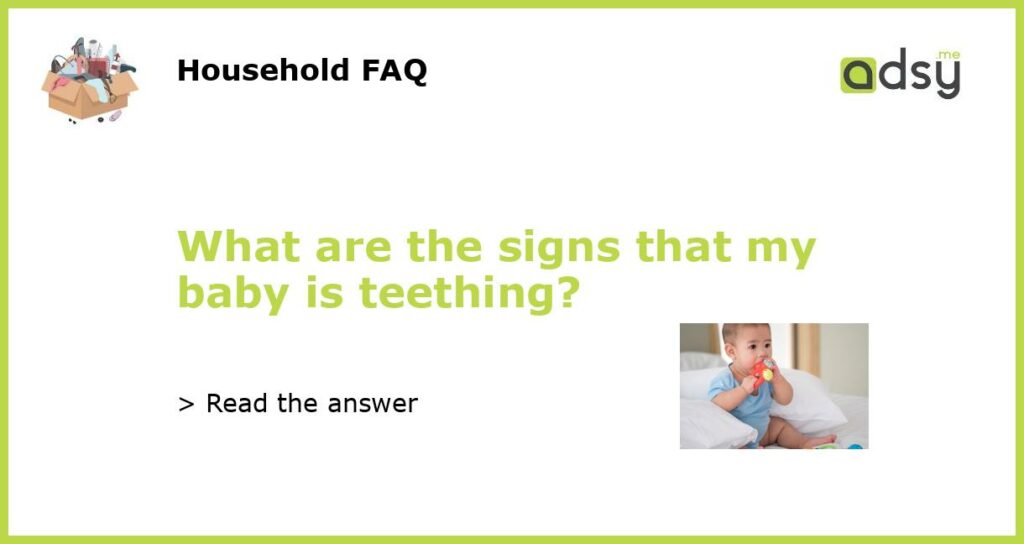Signs that Your Baby is Teething
Teething is a natural process that all infants go through, typically starting around 6 months of age. It can be a challenging time for both babies and parents, as the discomfort of emerging teeth can lead to fussiness and irritability. Knowing the signs that your baby is teething can help you understand what they are going through and provide the necessary comfort and care.
Excessive Drooling
One of the most common signs of teething in babies is excessive drooling. You may notice that your baby’s mouth is constantly wet, and they may produce more saliva than usual. This happens because teething stimulates the salivary glands, causing an increase in drooling. To prevent skin irritation, you can gently wipe your baby’s chin and mouth with a soft cloth throughout the day.
Gnawing and Chewing
Babies experience discomfort and pressure in their gums during teething, which leads them to seek relief by gnawing and chewing on objects. You may observe your baby biting down on their fingers, toys, or even furniture. To provide safe teething relief, offer your baby teething rings or toys specifically designed for chewing. Make sure they are clean and free of any harmful chemicals.
Irritability and Fussiness
Teething can cause discomfort and pain, which can make your baby irritable and fussy. They may cry more than usual, have difficulty sleeping, and become clingy. It’s important to remain patient and comforting during this time. You can try gentle massages on their gums with clean fingers or provide them with a chilled teething ring to alleviate some of the discomfort.
Changes in Eating and Sleeping Patterns
Teething can affect your baby’s eating and sleeping patterns. The discomfort in their gums may make it difficult for them to feed or cause them to show less interest in solid foods. They may also wake up more frequently during the night due to teething pain. Offer your baby cold or soft foods such as yogurt or purees to soothe their gums and try to establish a calming bedtime routine to help them sleep through the night.
Swollen or Sore Gums
If you gently run your finger along your baby’s gums, you may feel that they are swollen or tender. The pressure from emerging teeth can cause the gums to become red and inflamed. Some babies may develop small white bumps on their gums, known as “teeth buds,” indicating that teeth are about to emerge. Applying a clean, cool washcloth or a chilled teething ring can help reduce the inflammation and provide relief.






